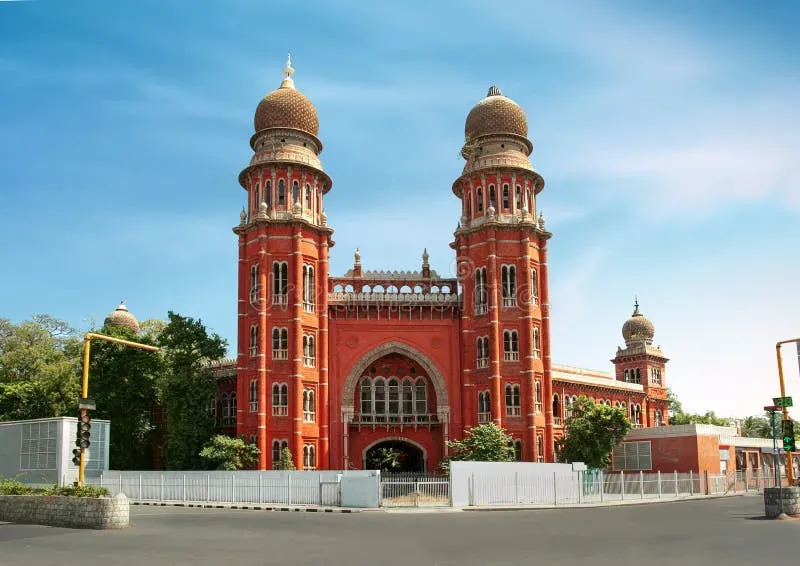Introduction
The integrity of elections is a cornerstone of democratic governance. Any compromise on this front not only undermines public trust but also threatens the very foundation of democracy. The Madras High Court recently addressed the pernicious issue of bribery in elections, highlighting its destructive impact on democratic processes and the alarming inaction of police forces that are expected to prevent such malpractices. This analysis explores the court's observations, the implications of electoral bribery, and the broader context of ensuring free and fair elections in India.
The Madras High Court's Observations
In a significant ruling, the Madras High Court expressed grave concerns over the pervasive issue of bribery in elections, emphasizing how it corrodes the democratic framework. The court noted that electoral bribery not only distorts the electoral process but also destroys the faith of the electorate in democratic institutions. This strong stance underscores the court's commitment to upholding electoral integrity and its recognition of the urgent need to address corruption in political contests.
The court was particularly critical of the role of law enforcement agencies, pointing out their inaction in curbing electoral bribery. It suggested that such negligence might stem from a desire to curry favor with political entities or candidates, thereby compromising their duty to uphold the law impartially. The court's observations serve as a clarion call for accountability and reform within the police force, highlighting the need for stringent measures to ensure that they perform their duties without bias.
The Impact of Electoral Bribery on Democracy
Electoral bribery poses a significant threat to the democratic process by skewing election outcomes in favor of those who can afford to buy votes. This practice undermines the principle of free and fair elections, where candidates should be chosen based on their merits and policies rather than their financial prowess. When elections are influenced by bribery, it leads to a situation where the elected representatives may not truly reflect the will of the people, eroding public confidence in democratic institutions.
Moreover, electoral bribery perpetuates a cycle of corruption, as candidates who win elections through corrupt means are likely to engage in further corruption to recoup their investments. This vicious cycle can lead to the prioritization of personal and party interests over public welfare, resulting in poor governance and a lack of accountability. The Madras High Court's observations highlight the urgency of breaking this cycle to safeguard democracy and ensure that it serves the people effectively.
Legal and Institutional Framework for Combating Electoral Bribery
India has a robust legal framework aimed at ensuring free and fair elections. The Representation of the People Act, 1951, prohibits bribery and other corrupt practices in elections. However, the enforcement of these laws remains a significant challenge, as evidenced by the Madras High Court's observations. The court's remarks underscore the need for stronger enforcement mechanisms and greater accountability for those tasked with upholding electoral laws.
The Election Commission of India (ECI) plays a crucial role in monitoring elections and ensuring compliance with legal standards. However, the effectiveness of the ECI is often hampered by limited resources and political interference. Strengthening the ECI's autonomy and capacity is essential for combating electoral malpractices and ensuring that elections are conducted in a free and fair manner.
The Role of Civil Society and Media
Civil society and the media play a vital role in safeguarding electoral integrity by raising awareness about electoral malpractices and holding authorities accountable. Investigative journalism and grassroots activism can expose instances of bribery and corruption, putting pressure on authorities to take action. The Madras High Court's observations highlight the importance of a vigilant and engaged civil society in the fight against electoral corruption.
Media campaigns and public awareness initiatives can educate voters about their rights and the importance of rejecting bribery. By empowering citizens to demand clean elections, these efforts can help create a political culture that values integrity and accountability. The involvement of civil society and media is crucial for building a robust democratic system that resists the corrosive influence of corruption.
Challenges in Addressing Electoral Bribery
Addressing electoral bribery is fraught with challenges, including the pervasive influence of money in politics and the lack of effective enforcement mechanisms. Political parties and candidates often rely on large sums of money to fund their campaigns, creating an environment where bribery becomes a tempting shortcut to electoral success. Reforming campaign finance laws and reducing the cost of elections are critical steps in curbing the influence of money in politics.
Another challenge is the lack of political will to tackle electoral bribery. Political parties may be reluctant to push for reforms that could limit their ability to use money as a tool for electoral success. Building a consensus among political stakeholders and fostering a commitment to clean elections is essential for overcoming this challenge.
The Way Forward
The Madras High Court's observations provide a valuable impetus for reforming India's electoral processes and addressing the scourge of bribery. A multi-pronged approach is needed to tackle this issue effectively. This includes strengthening the legal and institutional framework, enhancing the capacity and autonomy of the ECI, and promoting transparency in political funding.
Efforts should also focus on empowering citizens and promoting a culture of accountability. Public awareness campaigns and voter education initiatives can help citizens understand the detrimental impact of electoral bribery and encourage them to reject corrupt practices. By fostering a political culture that values integrity, India can move closer to achieving truly free and fair elections.
Conclusion
The issue of electoral bribery, as highlighted by the Madras High Court, represents a significant threat to democracy in India. The court's observations underscore the urgent need for comprehensive reforms to address this challenge and safeguard the integrity of elections. By strengthening enforcement mechanisms, promoting transparency, and empowering citizens, India can build a robust democratic system that truly reflects the will of the people.










0 Comments
Thank you for your response. It will help us to improve in the future.